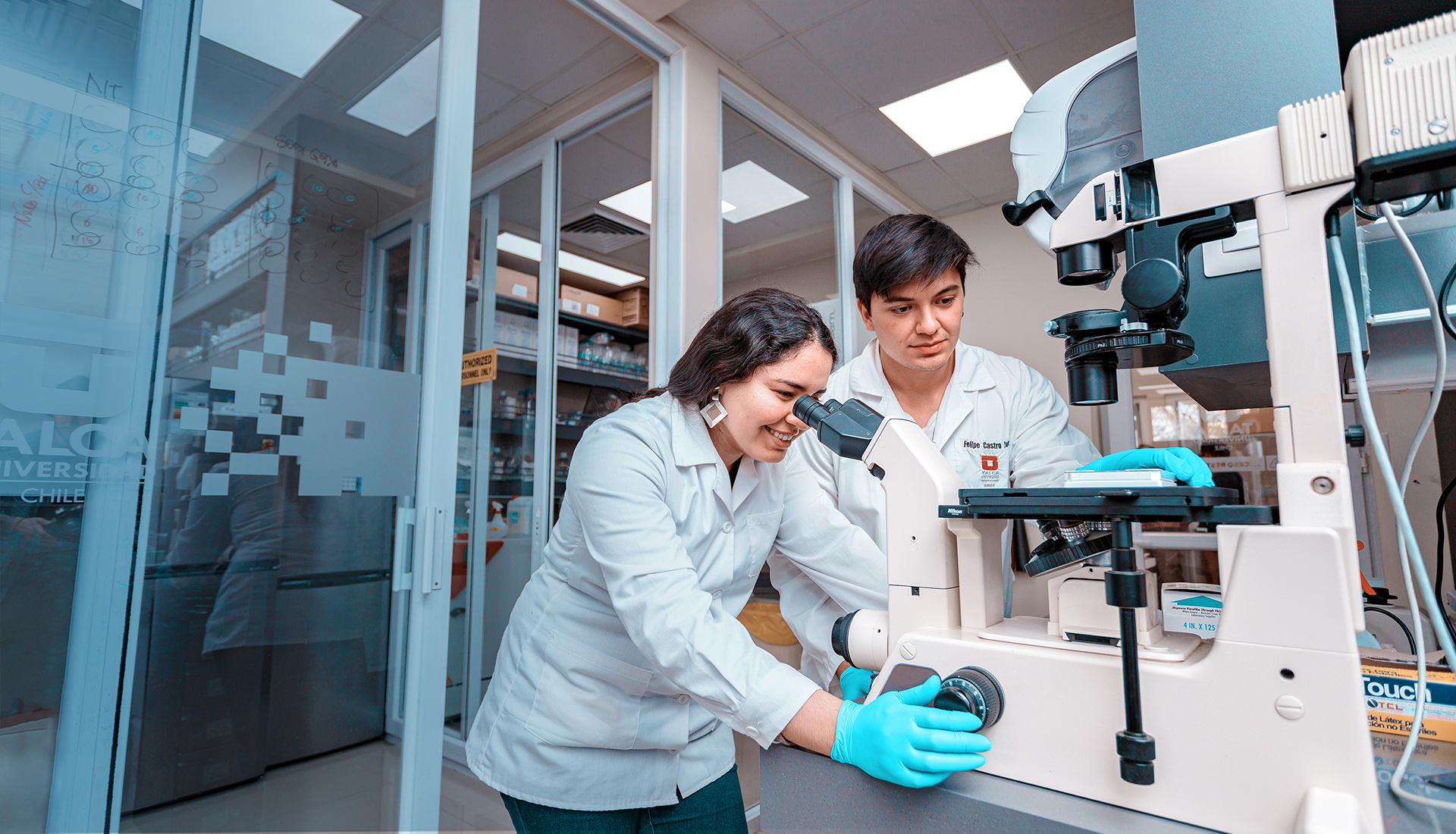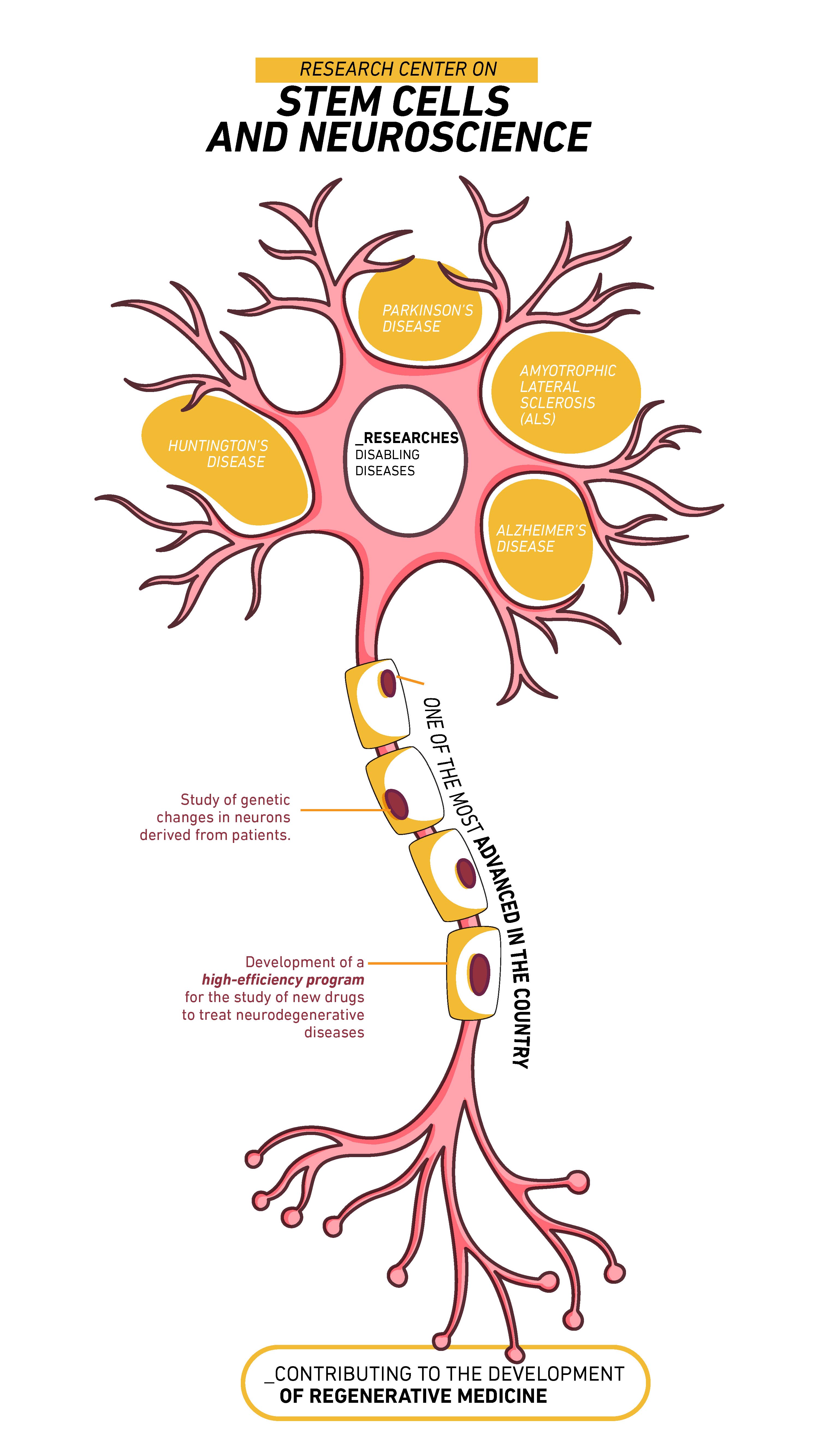Cargando 0%
Cargando 0%
During its 37 years of existence, the University of Talca has gained strength in the area of research, positioning itself within the select and limited group of complex institutions of the country.
2 Agosto 2019
The institution’s Research Center on Stem Cells and Neuroscience is a pioneer in the research on neurodegenerative diseases such as Parkinson’s, Huntington’s, and Amyotrophic Lateral Sclerosis (ALS).
“We are working with stem cells; the goal is to develop treatments for neurodegenerative diseases for the benefit of the entire population. This is a Herculean task to take on from the regions, but the foundations are already in place,” said Mónica Carrasco, director of the Research Center on Stem Cells and Neurosciences.
This unit is one of the University’s 17 Study Centers for building high-level knowledge in the most diverse specialties – such as social and health sciences, agriculture, energy and engineering – through which it seeks to contribute to scientific development beyond regional borders.
“We have made a remarkable effort, especially for a State-owned University with only 37 years of existence, to boost knowledge generation to a higher category, which today allows us to be placed within the select and limited group of complex institutions of the country,” said the UTalca faculty member and Vice President of Academic Affairs, Claudio Tenreiro.

MULTIDISCIPLINARY TEAMS
One of the attributes that distinguishes the research that takes place at the University of Talca is that it is conducted in an articulated manner with the postgraduate programs – particularly doctoral and postdoctoral programs – and in tune with environmental requirements, to which it also responds through its Scientific Ethics Committee, which safeguards that this work will be carried out within the framework of the standards established for this purpose in the country.
Another characteristic of the research conducted here is that it involves the work of professionals from different disciplines who, along with the necessary equipment to carry out studies in their respective fields, can also access highly specialized infrastructure.
“For example, the University harbors the country’s most advanced nuclear magnetic resonance spectrometer, a technology that enhances the development of studies in organic chemistry from an interdisciplinary perspective. Having such equipment allows our researchers to develop projects of greater complexity and consolidate their leadership in cutting-edge research,” said Tenreiro, who added that the Utalca’s Center for Advanced Scientific Instrumentation contributes to the achievement of that goal.
Another fact that enables measuring the importance assigned by the University to this field is that, over the last five years, its number of faculty-researchers increased by 109%, which is directly associated with its strategy of favoring the incorporation of advanced human capital.
Galería de imágenes